19 Things You Should Never Do When You Live Alone
Living alone is a total vibe. You can dance in your towel, eat cereal at 11 p.m., and binge true crime documentaries without judgment.
But here’s the thing: freedom doesn’t mean throwing all common sense out the window. If you’re flying solo — whether it’s for the first time or the fifth — there are certain habits and behaviors that could put your safety, sanity, or social life at risk.
I’ve lived by myself for years now, and trust me, I’ve learned some lessons the hard way (like the Great Candle Incident of 2019 that nearly turned my apartment into a bonfire).
Not trying to scare you… just trying to keep you safe, sane, and not calling your mom at midnight with an emergency that could have been prevented.
1. Leave Your Doors Unlocked
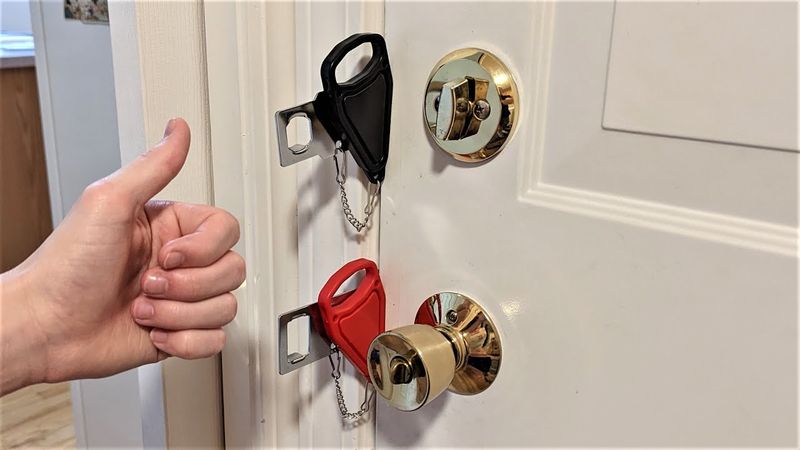
I once left my door unlocked while grabbing mail, and returned to find a neighbor’s cat making itself at home on my couch. Cute, but terrifying when you realize it could’ve been anyone walking in. Even in “safe” neighborhoods, an unlocked door is basically an invitation.
The five seconds it takes to lock up is nothing compared to the hours you’ll spend filing police reports if something goes missing. And that false sense of security thinking “I’ll just be a minute” is exactly when something happens.
Make locking your door as automatic as breathing. Get into the habit even when taking trash out or checking mail. No exceptions, no excuses. Your safety isn’t something to gamble with just because you’re feeling lazy or your hands are full of groceries.
2. Ignore Strange Noises at Night

That weird bump at 3 AM? Don’t just pull the covers over your head and hope it goes away. When I first lived alone, I convinced myself every creak was just “the building settling” until the night my neighbor’s pipe burst and flooded my hallway while I tried to sleep through the sound.
You don’t need to grab a baseball bat for every noise, but having a plan matters. Keep your phone nearby. Know which neighbors you can call in an emergency. Consider a simple door alarm or even a doorstop for peace of mind.
Strange sounds usually have innocent explanations – the refrigerator cycling, radiators hissing, or that raccoon that’s definitely living in your building’s crawlspace. But checking safely beats lying awake wondering if you should have called someone.
3. Post Your Solo Status on Social Media

“Home alone all weekend!” might seem like an innocent update, but it’s basically a digital billboard advertising your vulnerability. Those vacation photos from the beach? They’re telling everyone your apartment is sitting empty. That check-in at the airport? You’ve just announced a vacancy.
I’m not saying you need to go off-grid or lie about your life. Just be strategic about timing. Save those dreamy sunset vacation shots for when you’re back home. Use the past tense for adventures rather than announcing plans.
Even with private accounts, friends of friends can see your posts, and not everyone has your best interests at heart. The vacation selfies will get just as many likes when posted after you’re safely home. Your FOMO can wait until you’re not broadcasting an empty apartment to potential creeps.
4. Let Your Food Supply Dwindle to Nothing
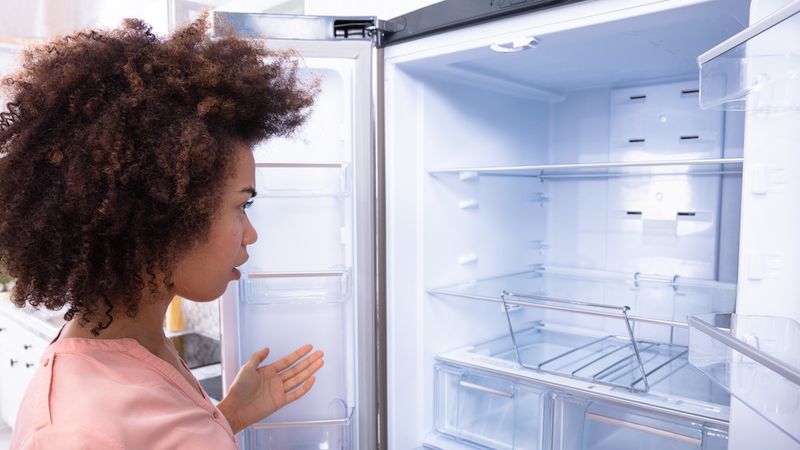
There’s nothing worse than opening your fridge at 10 PM to find nothing but mustard, pickle juice, and that yogurt from who-knows-when. I learned this lesson during a snowstorm when my dinner options narrowed to stale crackers and maple syrup.
Living alone doesn’t mean you need less food – it means you need smarter food. Stock up on freezer meals, canned goods, and basics that won’t spoil quickly. Keep easy protein sources around like peanut butter, tuna, or frozen chicken.
The empty pantry problem isn’t just about hunger – it’s about self-care. When you live alone, nobody else is bringing home groceries or suggesting takeout. You’re the entire food department. Low food supplies lead to poor nutrition, unnecessary delivery costs, and those sad late-night meals that make you question your life choices. Adult points: earned.
5. Neglect Smoke Alarms and Safety Devices
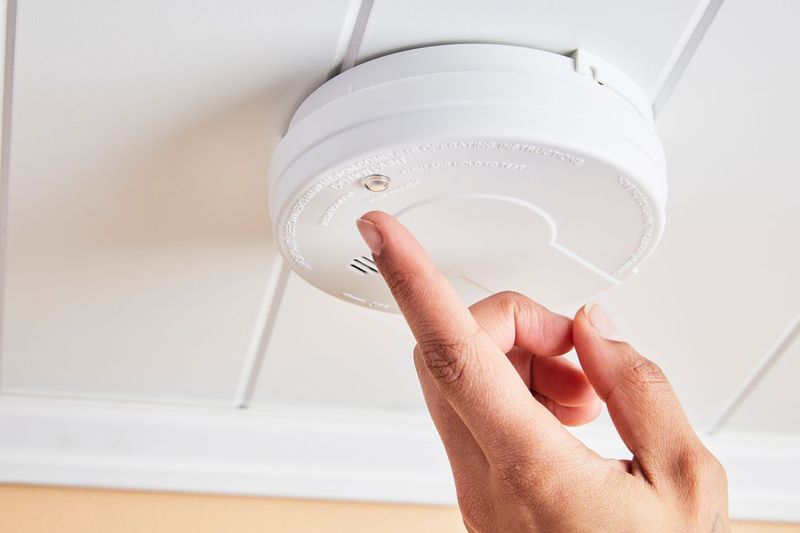
Remember when your parents used to check the smoke alarms and you thought it was just another boring adult thing? Turns out they were keeping everyone alive. When I ignored that low-battery chirp for three days, I wasn’t being rebellious – I was being reckless.
Set calendar reminders to test smoke and carbon monoxide detectors monthly. Replace batteries twice yearly (I do mine when the clocks change). And please, actually own a fire extinguisher and know how to use it.
These devices are especially crucial when you live alone because there’s no backup person to smell smoke while you’re sleeping or notice carbon monoxide symptoms. You’re the only one responsible for your safety now. The few minutes it takes to maintain these systems could literally save your life when there’s nobody else around to call for help.
6. Leave Candles Burning When You’re Not in the Room
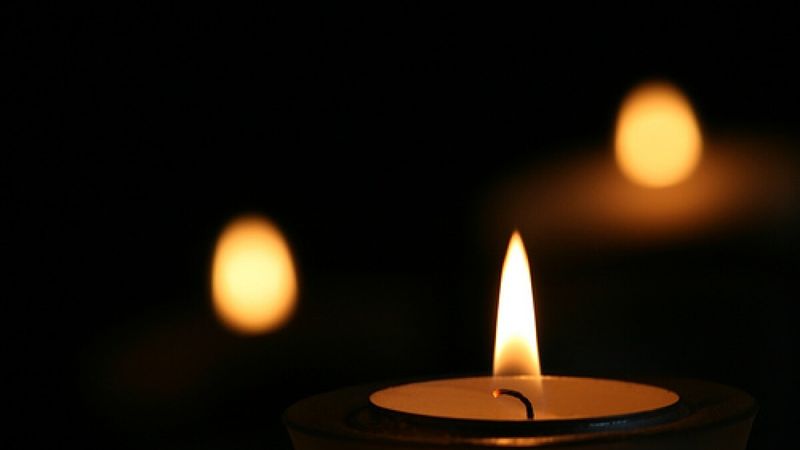
Those gorgeous scented candles creating perfect ambiance? They become potential arsonists the minute you leave the room. I learned this when my “quick” shower turned into 30 minutes of deep conditioning, and I returned to find wax everywhere and a dangerously tall flame.
No matter how careful you think you are, unexpected things happen. Phone calls pull you away. You get absorbed in a task in another room. You accidentally fall asleep during that “just one episode” of your show.
Invest in battery-operated flameless candles if you want constant ambiance. They’ve gotten surprisingly realistic, and bonus: many come with remotes. Or just make blowing out candles part of your routine when leaving a room – like turning off lights. Your security deposit (and possibly your life) depends on this small habit that’s easy to overlook when there’s no one else around to be the responsible one.
7. Procrastinate on Taking Out the Trash
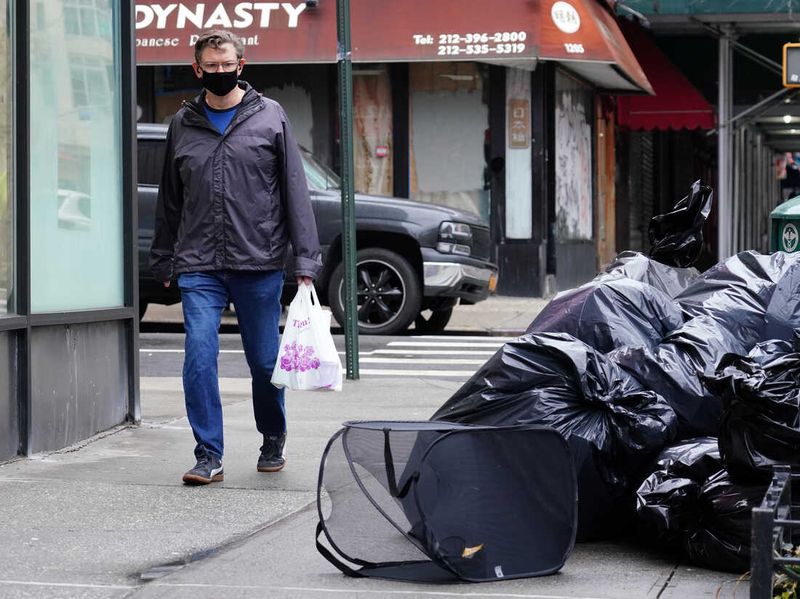
Nobody’s around to judge your garbage mountain except the fruit flies hosting family reunions above it. When I pushed my trash limits, I ended up with a kitchen that smelled like a dumpster fire and tiny bugs that took weeks to evict.
Living alone means you’re the entire sanitation department. Create a regular schedule for trash duty – maybe Sunday and Wednesday nights – and stick to it even if the bag isn’t completely full. For food scraps in warm weather, consider keeping them in the freezer until trash day to prevent smells and pests.
This isn’t just about avoiding grossness (though that’s reason enough). Full trash cans attract pests that are much harder to get rid of than they are to prevent. And letting garbage pile up can become a slippery slope toward neglecting other aspects of your living space, affecting both your physical environment and mental wellbeing.
8. Rely Solely on Your Phone as an Emergency Light Source
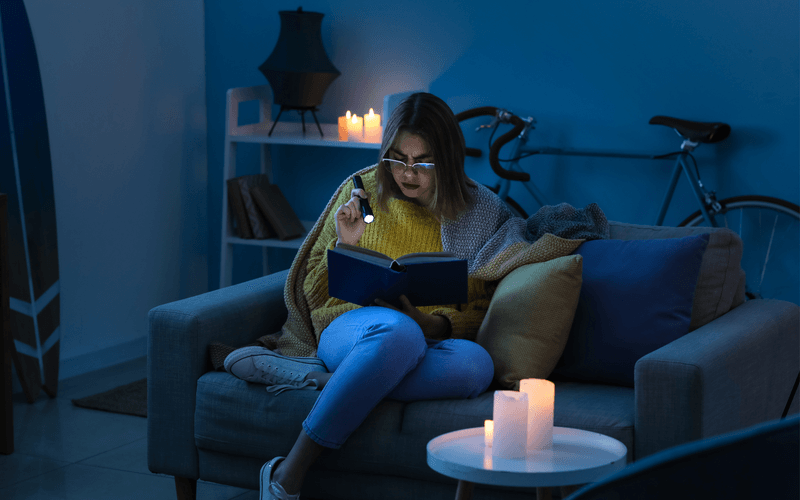
Power outages have impeccable timing – striking when your phone battery is at 12%, you’re in the shower, or right as you’re heating dinner. My first blackout taught me that my phone flashlight, while handy, drains battery faster than a teenager on Instagram.
Keep actual flashlights in strategic locations – bedside table, kitchen drawer, bathroom cabinet. Add a lantern-style light for hands-free illumination. And yes, have spare batteries stored where you can easily find them in the dark.
Remember: during an emergency, your phone is your communication lifeline. Draining its battery as a makeshift flashlight means you could lose your ability to call for help or check emergency updates. Plus, trying to cook, clean up broken glass, or navigate stairs with one hand while holding your phone is a recipe for accidents when there’s no one else around to help if you fall.
9. Skip Having a Basic Emergency Kit
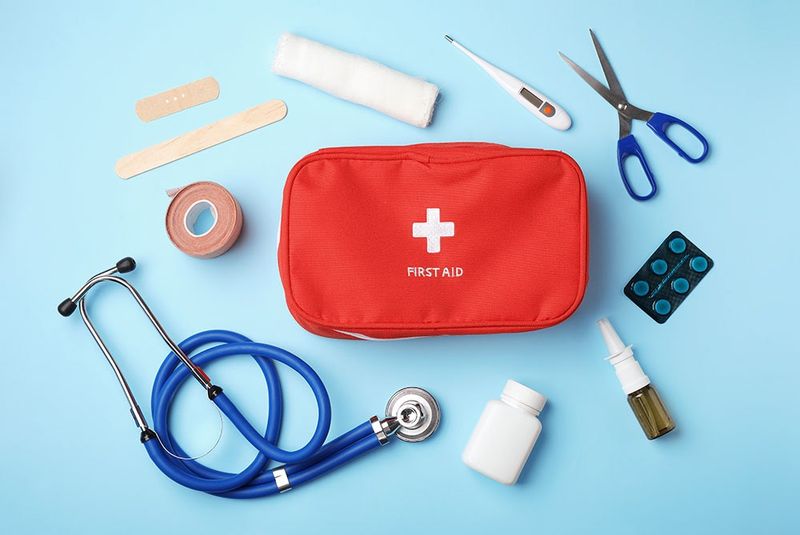
When I sliced my finger making dinner and realized I owned zero bandages, I had to MacGyver a paper towel and tape solution that was both ineffective and ridiculous. Don’t be like past me.
Your solo living emergency kit doesn’t need to be apocalypse-ready, but should include: bandages, antiseptic, pain relievers, fever reducers, a thermometer, and any personal medications. Add bottled water, shelf-stable snacks, a portable phone charger, and basic tools like screwdrivers and pliers.
Living alone means small emergencies stay small only if you’re prepared. That sprained ankle, power outage, or nasty cold feels much worse when you realize at 2 AM that you have nothing you need and no one to run to the store for you. The independence of living solo is awesome until you’re sick and realize you’re also your own nurse, errand runner, and support system.
10. Forget to Lock Your Windows
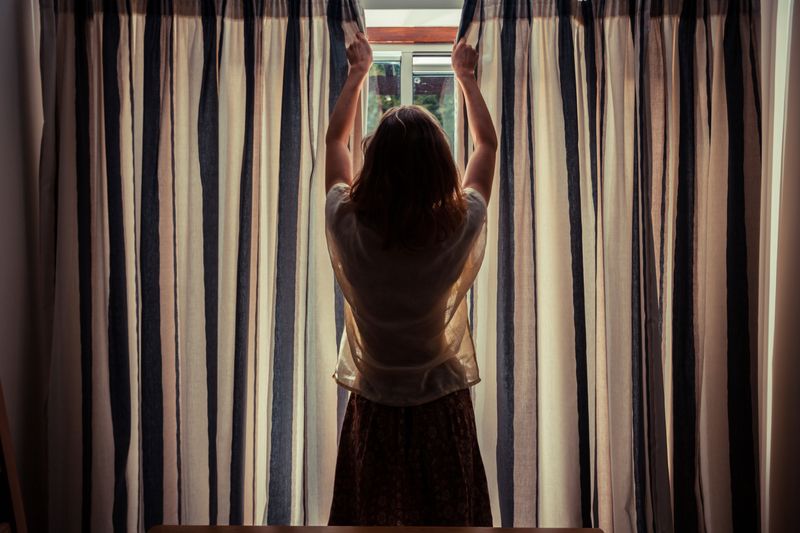
That delightful summer breeze flowing through your open windows? Not so delightful when you realize you left them unlocked while you were at work all day. First-floor windows might as well be doors to anyone determined enough. And those “inaccessible” upper-floor windows? Tell that to the raccoon I found rummaging through my second-floor kitchen.
Make checking window locks part of your coming-and-going routine, especially before bed and when leaving home. For ground floor apartments, consider window stops that allow ventilation while preventing full opening, or decorative security bars that don’t scream “prison cell.”
This isn’t paranoia – it’s practical. Windows are often the most overlooked entry point because we focus on door security. And yes, even in “nice neighborhoods,” opportunistic break-ins happen. When living alone, that extra second to check each window becomes your invisible roommate looking out for your safety.
11. Let Laundry Pile Up Until You’re Out of Options
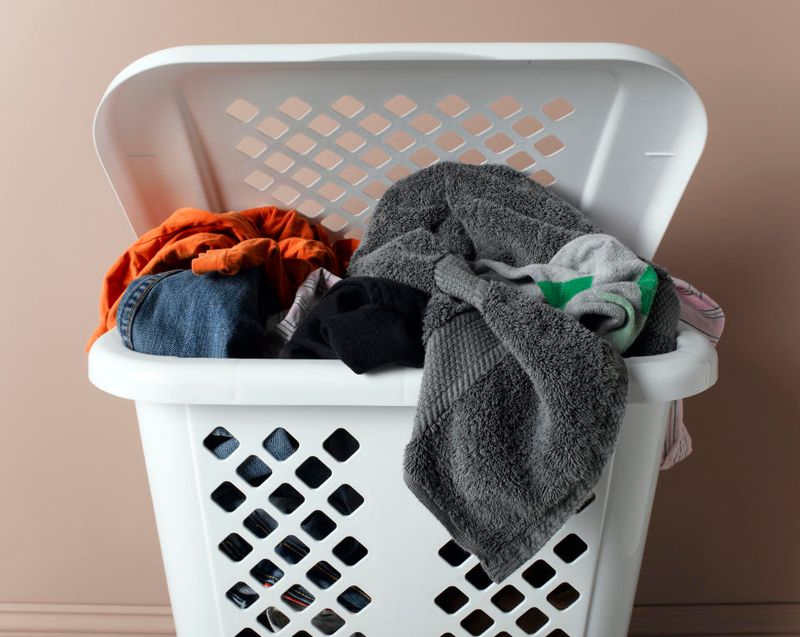
We’ve all been there – wearing that weird sports bra as underwear because everything else is dirty. When I lived with roommates, shared laundry duty created accountability. Living alone? That mountain of clothes kept growing until I wore swimsuit bottoms to the office.
Create a realistic laundry schedule based on your wardrobe size. Sunday afternoons? Wednesday nights? Whatever works, but make it consistent. Set phone reminders if needed. For apartment dwellers sharing machines, identify less busy laundry room times and mark them in your calendar.
Beyond the obvious hygiene issues, the laundry avalanche affects your mental health too. Walking past that overflowing hamper creates subtle daily stress. Plus, the longer clothes sit dirty, the harder stains set and the mustier everything gets. Staying on top of laundry is self-care that pays dividends in both wardrobe options and mental clarity when no one else is around to notice or help.
12. Keep Your Whereabouts Completely Private

Independence doesn’t mean invisibility. When I went hiking alone without telling anyone, I sprained my ankle and realized no one knew where to find me. Not my finest moment, crawling back to the trailhead while questioning my life choices.
You don’t need a full itinerary approval process, but having one trusted person who generally knows your whereabouts creates a safety net. Share your location with a close friend for specific activities, or just text when you’re home safe after a night out.
This isn’t helicopter parenting yourself – it’s creating a basic safety system. If something happens, hours or days might pass before anyone realizes you’re missing if you’ve told no one your plans. The freedom of living alone is wonderful, but it comes with the responsibility of creating your own check-in system. Your autonomy isn’t compromised by the occasional “Made it home!” text to someone who cares.
13. Overindulge in Alcohol When You’re Home Alone
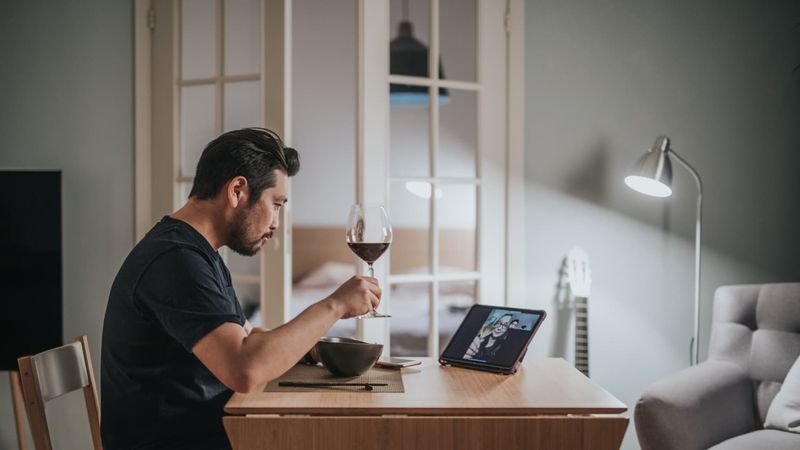
That bottle of wine after a rough day seems harmless until you realize there’s no one around to notice if something goes wrong. I’m not saying never enjoy a drink alone – just be mindful of your limits when you’re flying solo.
Drinking alone requires extra self-awareness. It’s easier to lose track of how much you’ve consumed when there’s no one giving you side-eye for that third refill. And intoxication increases accident risks – from kitchen mishaps to falls – when there’s no one to help if needed.
Beyond physical safety, regular solo drinking can become an emotional crutch. It’s easy to slip into using alcohol to fill the silence or loneliness sometimes inherent in living alone. Keep alcohol consumption mindful by measuring drinks, alternating with water, or saving drinks for video calls with friends. Solo living gives you freedom, but it also means being your own responsible bartender.
14. Ignore Maintenance Issues Because “It’s Just You”
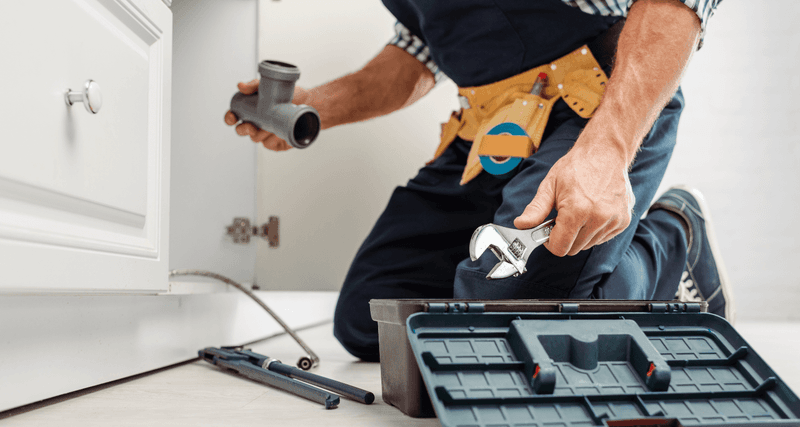
That dripping faucet? The weird smell from the air vent? The door that doesn’t quite close right? When I ignored my leaky shower because “it wasn’t that bad,” I ended up with bathroom mold that took weeks to address.
Small problems become big problems faster than you think. Keep a running list of maintenance issues and address them promptly, either by calling your landlord or learning basic DIY fixes. YouTube tutorials exist for nearly everything, and basic tools are worth the investment.
Living alone means you’re the only one noticing when things go wrong. There’s no roommate to point out that weird noise the refrigerator started making or the window that suddenly won’t open. Train yourself to be proactive about your living space. Regular maintenance checks prevent emergencies, save money long-term, and keep your solo sanctuary comfortable and safe. No one else is going to notice or fix these things for you.
15. Misplace Your Spare Key or Never Have One
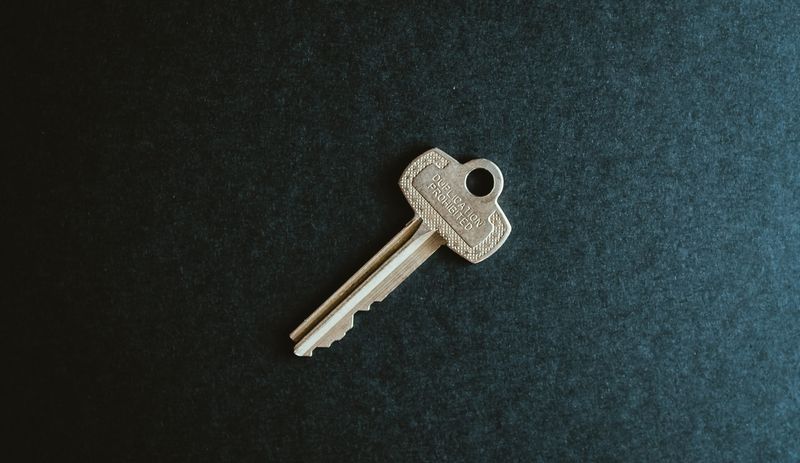
The walk of shame isn’t going to a neighbor’s apartment in your pajamas at 11 PM because you locked yourself out. Ask me how I know. After paying an emergency locksmith $200, I learned this lesson the expensive way.
Have a spare key, but be strategic about it. Don’t hide it under the doormat or in other obvious places. Give a copy to a trusted local friend or family member. Some people use lockboxes in secure locations or keep a spare at work. Whatever system you choose, remember where it is!
Consider keyless entry options if your lease allows. Many landlords approve simple keypad locks that don’t require permanent installation. They’re game-changers for the chronically key-challenged. When you live alone, there’s no roommate to let you in when you forget your keys. Creating a reliable backup plan isn’t just convenient – it prevents those desperate moments when you’re locked out with ice cream melting in your grocery bags.
16. Let Your Social Connections Fade Away
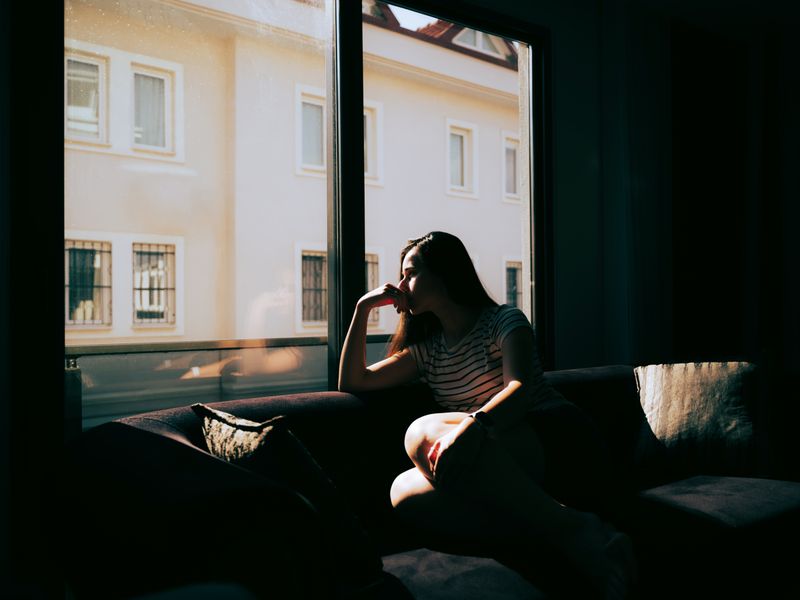
The beautiful silence of your own place can slowly transform from peaceful to isolating if you’re not careful. After my third weekend of speaking to no one but food delivery people, I realized my social muscles were getting seriously out of shape.
Living alone makes it easier to cancel plans, postpone catch-ups, or go days without meaningful conversation. Combat this by scheduling regular social activities – weekly friend dinners, virtual game nights, or coffee dates. Put them in your calendar like any other important appointment.
Humans need connection. Even introverts benefit from quality social interaction. The independence of solo living is wonderful, but it requires intentional effort to maintain relationships. Without the built-in social contact of roommates or family, it’s easy to slide into isolation without noticing. Your mental health depends on finding the right balance between cherished alone time and meaningful human connection.
17. Blast Music or TV Without Considering Neighbors
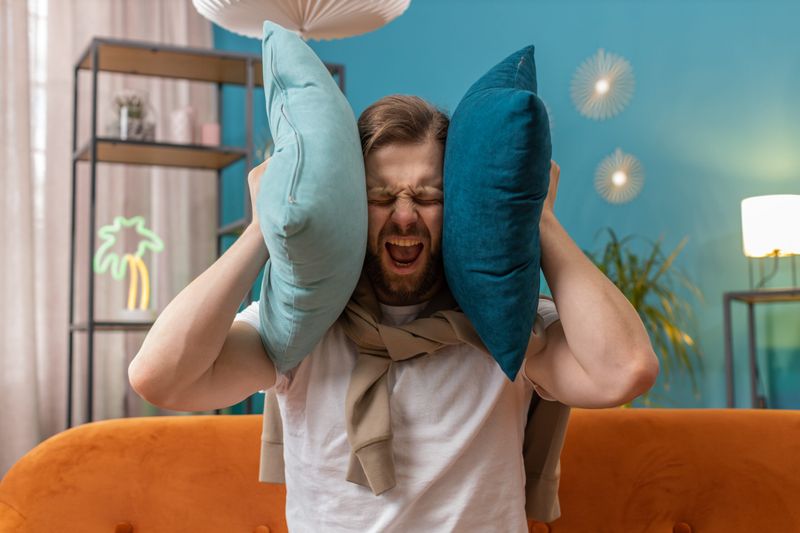
That feeling when you can finally dance around singing Taylor Swift at full volume? Magical. But your neighbors hearing every word of your shower concert at 11 PM? Not so much. I learned this when my elderly neighbor left a polite but mortifying note about my “enthusiastic singing.”
Living alone creates the illusion that you can be as loud as you want. Reality check: apartment walls are often thinner than they appear. Invest in good headphones for late-night TV binges or music sessions. Consider rugs to dampen sound if you have hard floors.
Being mindful of noise isn’t just about avoiding complaints – it’s about building good neighbor relationships. When you live alone, neighbors become an important part of your community and safety net. The people who might collect your packages or notice if something seems wrong are worth keeping happy. You can still have dance parties – just save the subwoofer bass for reasonable hours.
18. Keep Valuables in Plain Sight Near Windows
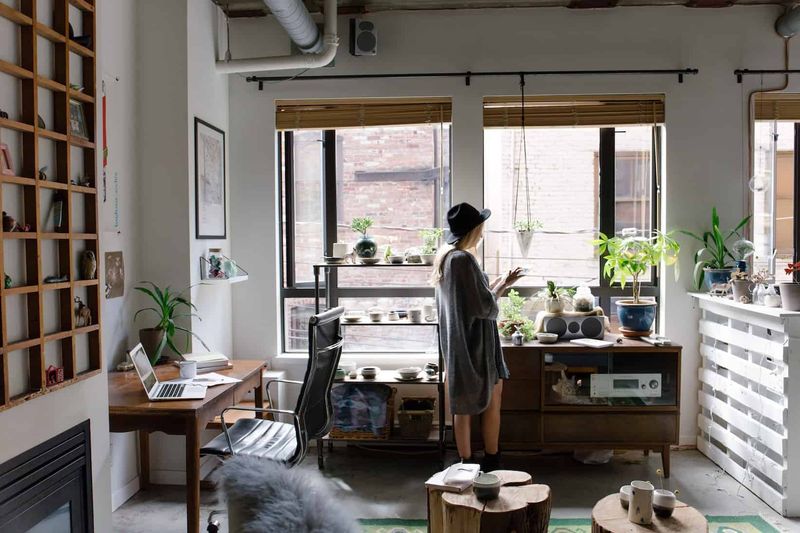
That gorgeous jewelry collection displayed on your windowsill? The laptop permanently stationed by the street-facing window? You’re basically creating a shopping catalog for potential thieves. When my neighbor’s apartment got broken into, the police pointed out exactly how visible her electronics were from the street.
Be strategic about what’s visible through your windows, especially on ground floors. Keep expensive items away from windows or use curtains and blinds strategically. Consider furniture arrangement that keeps valuables out of sight lines from windows and doors.
This isn’t about living in fear – it’s about not advertising what you have. When you live alone, you’re the only one monitoring your space and belongings. Simple adjustments like moving your TV away from direct window visibility or keeping jewelry in a less obvious location can reduce your risk of being targeted. Small precautions create peace of mind without cramping your style.
19. Assume You Must Handle Everything Yourself
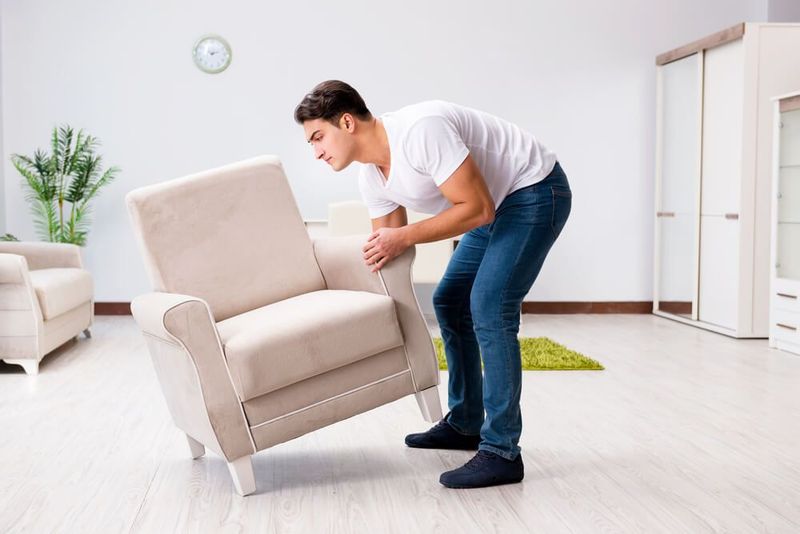
The badge of honor in solo living isn’t doing everything alone – it’s knowing when to ask for help. My stubborn attempt to move a sofa by myself ended with a back injury that could have been avoided with one phone call to a friend.
Keep a list of go-to people for different situations: the friend who’s good with tech problems, the neighbor who can help move heavy things, the family member who gives great advice. Most people are happy to help, especially when you’re specific about what you need.
Independence doesn’t mean isolation. Living alone successfully means building a support network and using it appropriately. You can be self-sufficient while still recognizing your limitations. The real strength is in knowing when a situation calls for backup. The freedom of solo living is wonderful, but trying to handle everything yourself – from heavy lifting to emotional challenges – is unnecessary and sometimes even dangerous.







